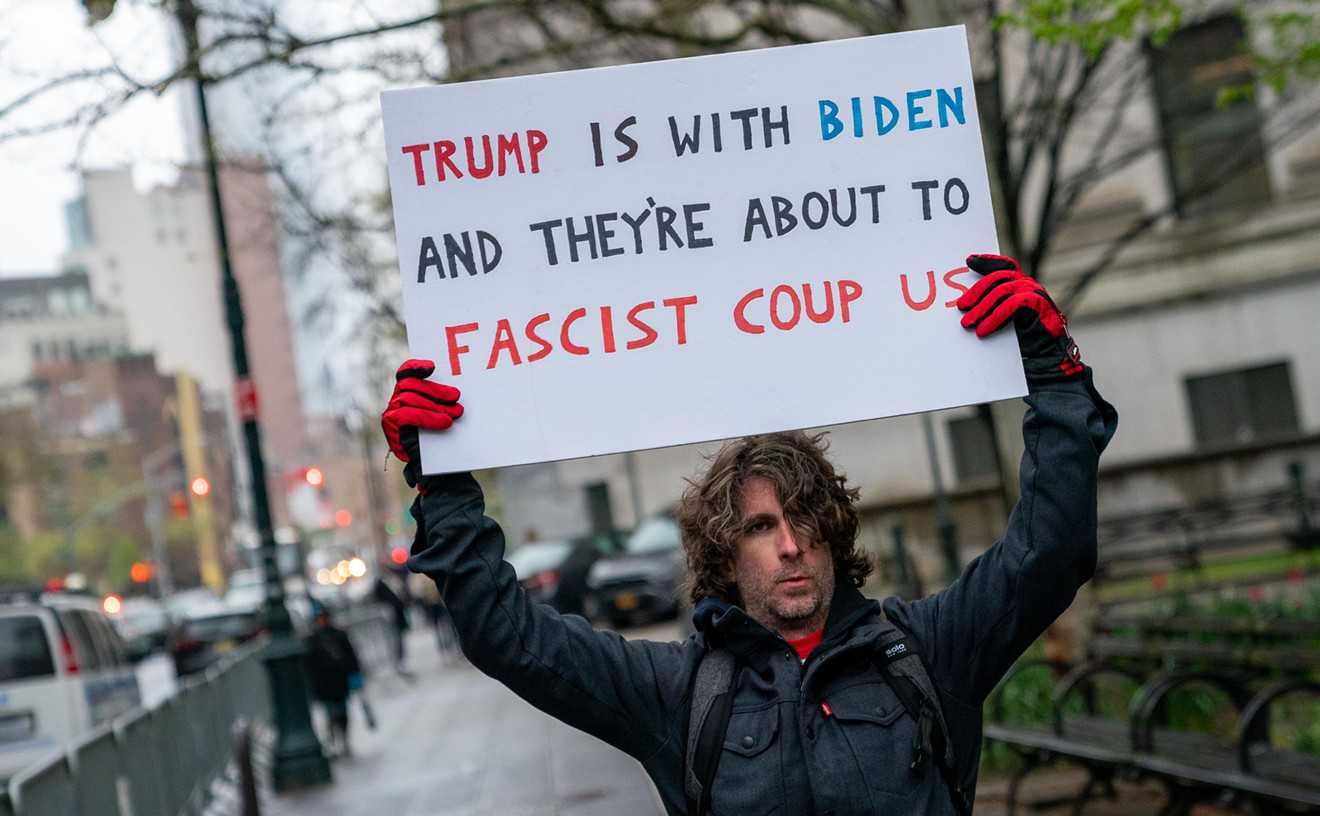Charged with pursuing clandestine stations in the United States is the Federal Communications Commission, created by Congress to regulate interstate and foreign radio communications through the 1934 Communications Act. In South Florida, this usually means cracking down on unlicensed anti-Castro broadcasters, who use the short-wave band as a primary weapon against the Cuban regime. (All radio operators, from powerful commercial stations to amateur "ham" users, need a license. Only those using CBs are exempt.)
"For us radio propaganda is as important as our military operations," says Andres Nazario Sargen, the 70-year-old secretary general of militant anti-Castro group Alpha 66. "It can indicate information the Cuban government hides from its own people. It can make people aware of Castro's failures and let them know it is possible to retake the towns, the villages, the whole country. Radio can help create rebellion through sabotage. It prepares the people emotionally for Castro's overthrow."
Alpha's long-running station, La Voz de Alpha 66, was one of South Florida's most notorious clandestine operations, but also active here during the early to mid-Eighties were Radio Libertad Cubana (Radio Cuban Liberty), Radio Mambi, Radio Abdala, Radio Giron, run by the Bay of Pigs Veterans' Association, Radio 1450 (named after a Bay of Pigs brigade), Radio Antorcha Martiana (Radio Torch of Marti), Radio Trinchera (Radio Foxhole), Radio Cuba Libre (Radio Free Cuba), Cuba al Dia (Cuba Up To Date), La Voz de la Juventud Progresista Cubana (The Voice of the Progressive Cuban Youth), La Voz de la Esperanza (The Voice of Hope), La Voz de la Resistencia Interna (The Voice of Internal Resistance), and the still-active La Voz del CID and Radio Caiman (Radio Alligator).
Radio Caiman, a slickly produced and powerful clandestine station, broadcasts twice per day, never revealing any clues as to its location or owner. Many believe the station is run by the CIA and based somewhere in Central America. The Junta Patriotica Cubana, headed by Cuban exile leader Tony Varona, has been accused of running the station. Varona denies the allegations.
Many other "rum and coke" broadcasters (so named for the "Cuba Libre" drink and the state of inebriation under which they often are said to transmit) have appeared and disappeared under various names, blasting away at Castro from amateur short-wave equipment in pickup trucks and Florida rooms. On February 9 of this year, the FCC shut down a modern version of Radio Antorcha Martiana. The station, whose name is derived from Cuban patriot Jose Marti, had been broadcasting music and anti-Castro commentary for several days. The FCC fined Eloy Escagedo $1000 for operating a station out of his Sweetwater home without a license. Escagedo had been shut down in 1982 for operating the unlicensed Voice of the Progressive Cuban Youth.
When they catch a clandestine broadcaster, the FCC has a full range of choices: Administrative fines usually amount to $1000 for operating without a license, $1250 for broadcasting illegally in frequencies reserved for aviation, maritime, and other safety communications; a second offense costs twice as much. The agency also can ask that a judge order the violator to stop broadcasting and allow the FCC to confiscate his equipment. If these means are ineffective, the agency can request that the U.S. Attorney prosecute, in which case penalties might reach $100,000 in fines and one year in jail for the first offense (a misdemeanor), and $250,000 and two years behind bars for the second offense (a felony).
Fidel Castro has not always waited around for the FCC to do its job. In the early Sixties, Robert F. Williams, a fugitive black activist from North Carolina, broadcast a program called Radio Free Dixie on the powerful Radio Progreso in Havana, calling on blacks in the United States to burn cities and commit violence and subversion. "Usually Castro beats the pots and pans or blasts away interference from some of his stations," comments Lawrence Clance, a lawyer for the FCC. "But he has been known to do that kind of stuff, and worse.










